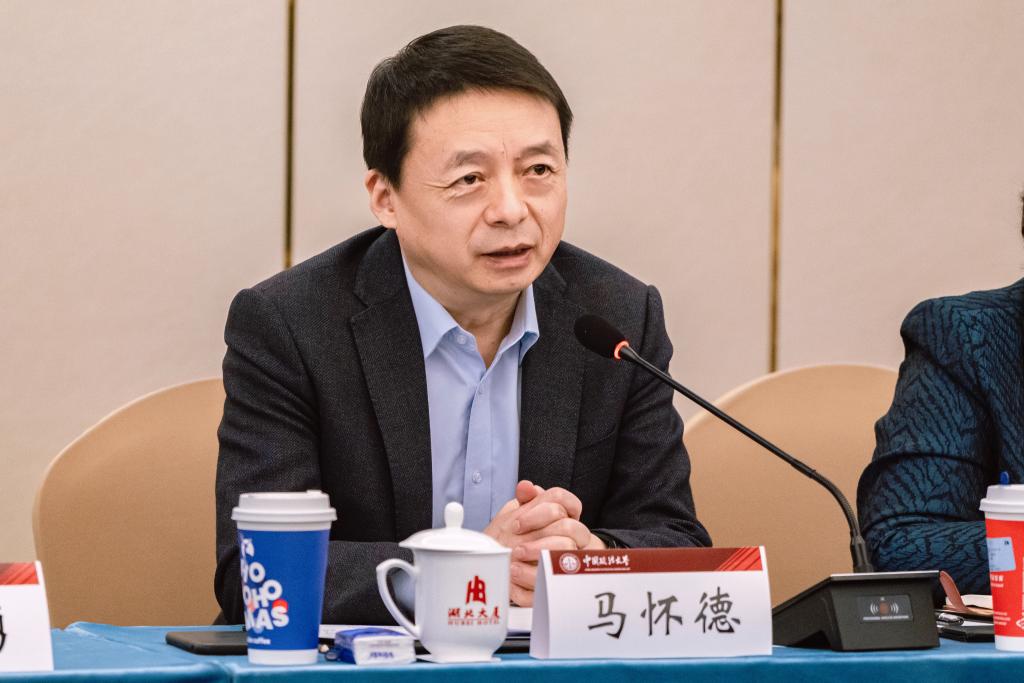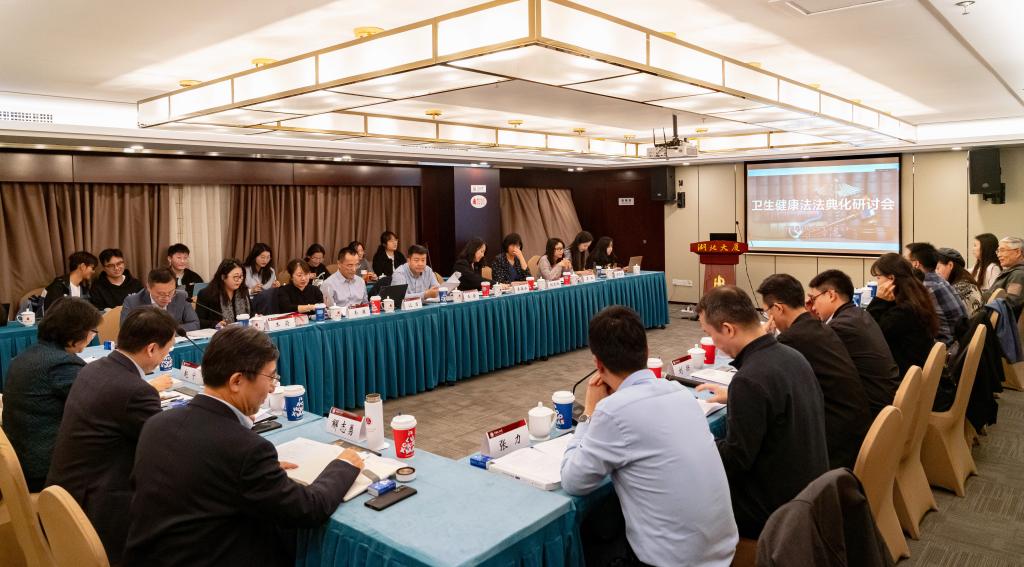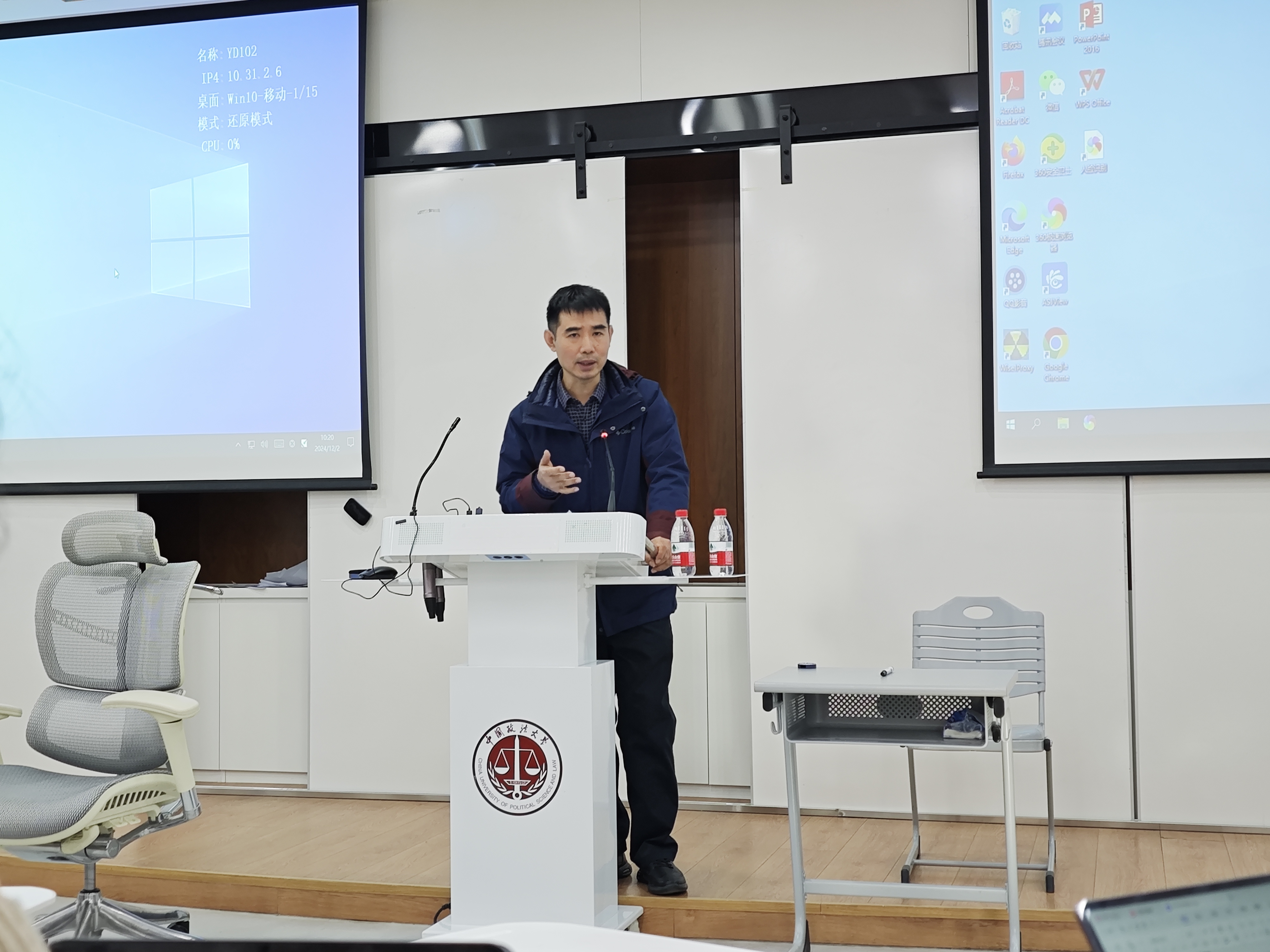In order to promote the research and compilation of the Health Law Code, to discuss and clarify the important problems in the construction of the theoretical system of the health law with Chinese characteristics in the new era, the Health Law Research Centre of CUPL held the Symposium on the Codifying of Health Law in Beijing on 30 Oct, 2023.
Nearly thirty experts and scholars from the Education, Science, Culture and Public Health Committee of the National People's Congress of China, National Health Commission of China, Peking University, Tsinghua University, Renmin University of China, Wuhan University, Nankai University, Guangdong University of Foreign Studies, China University of Political Science and Law, East China University of Political Science and Law, Beijing University of Chinese Medicine, Capital University of Medical Sciences, Shanghai University of Political Science and Law, Beijing Forestry University and other state organs and institutions of higher education conducted in-depth discussions on the theme through a combination of online and on-site approaches.
The opening ceremony of the conference was presided over by Zhao Peng, Dean of the Institute of Rule of law of CUPL. Chen Jialin, Director of the Population and Health Office of the Education, Science, Culture and Public Health Committee of the National People's Congresss, Zhao Ning, Director of the Department of Laws and Regulations of the National Health Commission, and Ma Huaide, President of CUPL, presented the opening remarks.
Chen Jialin briefly reviewed the history of civil code compilation, and pointed out that the task of health law codification is heavy and the challenge is great, which needs to be based on the revision and perfection of existing laws and the enactment of relevant laws.

Zhao Ning believed that the existing laws and regulations cover public health, medical and health care, prevention and treatment of occupational diseases, food and drug safety, population and family planning and other fields, and that a legal system for health has already been formed, on this premise, it is of great significance to discuss the proposition of codifying the health law.

Ma Huaide said the system, theory and practice for compiling the health code are mature, and speeding up the compilation of the Health Code is an important part of meeting people's growing needs for a better life. He emphasised that it is of great significance for promoting the overall rule of law, realizing the modernization of the national governance system and governance capacity. He proposed the general idea and basic frame of health law codification.
After the speech, Xie Zhiyong, Dean of the College & Director of the Research Centre for Health Law, delivered a keynote speech. He believed that it is necessary to codify the health law, which should adhere to the basic principle of protecting people's right to life and health, and make clear the guiding ideology, value pursuit and system goal. He said that a it is also feasible to codify the health law because of the established legal norms of the health law, the continuous growth of the health law team and more and more theoretical research works on health law. Furthermore, Xie put forward ideas and prospects on the key issues such as the orientation and goal, scope and content, democracy and science, fairness and operability of the codification of the health law.

The conference consisted of two sessions, the Theory and Proof of the Codification of Health Law and the Framework and Content of the Codification of Health Haw. Director of the Centre for teacher Development of CUPL Wang Wei and Associate Dean of the School OF Law of CUPL Zhang Li moderated the each session respectively.
In the two sessions, the participating experts and scholars made presentations on the theoretical construction and the substantive and formal framework of the health code. They made suggestions and generally reached the following consensus: first, the codification of health law is of great importance and significant effect, and it is indeed necessary and feasible; second, the codification of health law needs to be based on the maturity of substantive and formal conditions, so theoretical research and legal practice should conducted at the same time; third, the successful experience of ‘Two Steps’ in the civil code can be used for reference in the codification of health law, which includes two parts in its structure, the general principle and the sub-principle; last, the codification of health law needs to take into account the macro-background of the rapid development of modern science and technology and its wide application in medical and health affairs, thus making the necessary forward-looking norms.
This symposium was the first domestic professional seminar that put forward the idea of codifying health law. The discussion was intense and the results were significant in the meeting, which built the bridge of communication for the theory community and the practice community.












